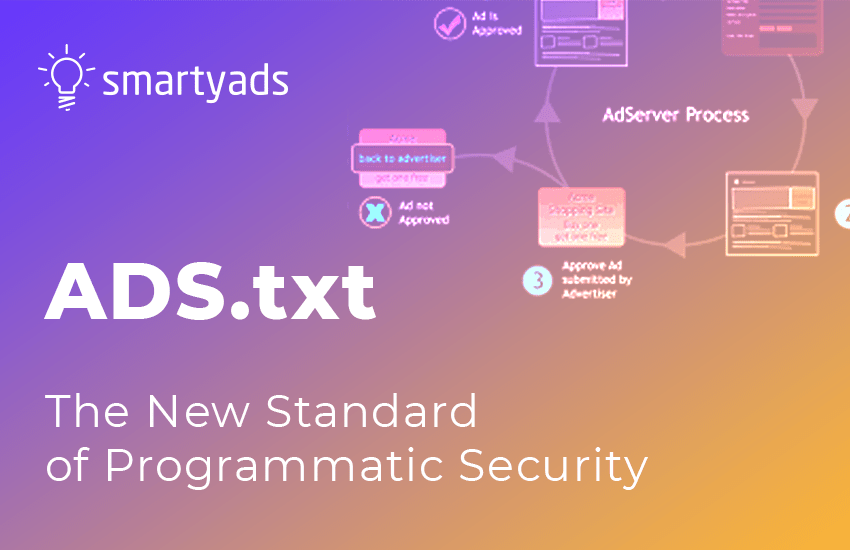The Authorized Digital Sellers (ads.txt) initiative, launched by the Interactive Advertising Bureau (IAB) Tech Lab, has been pivotal in combating fraud and enhancing transparency in programmatic advertising. Since its introduction, ad fraud has remained a persistent issue in the digital advertising landscape, costing the industry approximately $6 billion annually. Many companies are still unaware that their ads are being impacted by this problem. While various solutions, including blockchain technology, have been considered to tackle this billion-dollar challenge, simple solutions like ads.txt have proven to be remarkably effective.
The ads.txt framework addresses critical issues in digital advertising, such as domain spoofing, unauthorized inventory reselling, and fraudulent ad placements. By establishing a system of authorized sellers, ads.txt empowers publishers with greater control over who can sell their inventory while providing buyers with increased confidence in the authenticity of the inventory they purchase through programmatic channels.
As of 2024, ads.txt has become a widely accepted practice across the industry. Ads.txt explained is a simple text file that website owners create to declare which companies are authorized to sell their ad inventory. Its adoption is no longer just a recommendation; it’s seen as essential for protecting the integrity of digital advertising. As the landscape continues to evolve, understanding the ads.txt framework is crucial for both publishers and advertisers in their ongoing efforts to combat ad fraud and foster trust within the digital ecosystem.

What is ads.txt?
The ads.txt project involves creating a plain text file that publishers use to disclose all their partners — both legitimate sellers and resellers of their ad inventory. This list of "authorized digital sellers" is then hosted at the root level of a publisher’s domain, making it easily accessible via HTTP/HTTPS from the website to the public.
How do publishers implement ads.txt?
Publishers can create an ads.txt file in Notepad or any other basic text-editing program according to the specifications set out by IAB. Ads.txt must contain the following fields:
- Domain name of the advertising system, SSP or an ad exchange (ex. ‘smartyads.com’);
- Publisher account ID (a unique string of numbers/letters);
- Type of relationship (‘direct’ or ‘reseller’);
- Type of inventory (#display, video, native, text)
This is how the string would look like in a “/ads.txt” file:
smartyads.com, pub-4111763448220873, direct #display, video, native
Ads.txt example files from premium publishers:
- http://www.nytimes.com/ads.txt
- http://www.businessinsider.com/ads.txt
- https://www.forbes.com/ads.txt
- https://www.washingtonpost.com/ads.txt
How does ads.txt work?
Publishers upload an ads.txt file to their web server that acts out as a public declaration of the companies that are accredited to sell their ad inventory. Then, media buyers and advertisers send web crawlers to scan thoroughly publisher’s sites and collect the lists of the authorized partners. After that, programmatic buyers create a filter that matches their ads.txt with the data provided by the OpenRTB bid request, checking the validity of every impression they purchase.
The ads.txt mechanism allows advertisers to separate authentic impressions from the fake ones and purchase inventory only from verified supply sources.
What Problem Does Ads.txt Solve?
Domain Spoofing: Ads.txt helps prevent domain spoofing, where fraudsters impersonate legitimate publishers' domains to sell fake inventory. By specifying authorized sellers, it reduces the chances of unauthorized parties misrepresenting themselves.
Unauthorized Inventory Reselling: The initiative protects publishers from unauthorized reselling of their ad inventory. Ads.txt ensures that only approved sellers can sell their inventory, giving publishers more control over who profits from their ad space.
Fraudulent Digital Ads: By promoting transparency in the programmatic advertising supply chain, ads.txt helps reduce the distribution of fraudulent ads. It provides a mechanism for buyers to verify that they are purchasing inventory from legitimate sources.
Lack of Transparency: Ads.txt enhances transparency by clearly listing which companies are authorized to sell inventory on behalf of publishers. This transparency builds trust among advertisers and encourages more responsible buying practices.
Increased Buyer Confidence: Advertisers gain greater confidence in the authenticity of the inventory they purchase. Knowing that the inventory comes from verified sources helps reduce the risks associated with ad fraud and wasteful spending.
Complex Supply Chains: Ads.txt simplifies the complex digital advertising supply chain by providing a straightforward method for publishers to declare their authorized sellers. This clarity benefits both publishers and advertisers in navigating the ecosystem.

What is the benefit of ads.txt?
Digital media buying historically relied on the provided URL and the domain of a publisher, assuming they represent an authentic inventory. Adtech companies incorporated blacklists of suspicious publisher domains and even shared this data across programmatic platforms. In this atmosphere of distrust and lack of knowledge, cybercriminals could easily thrive, commit ad fraud, and get away with it.
The ads.txt specification benefits both advertisers and publishers, bringing more transparency into the programmatic sales.
- Easy: The technical ads.txt implementation is easy on the publisher’s side because the ads.txt file itself is lightweight and can be launched in any web browser. As for the advertiser’s side — IAB Tech Lab has recently released an ads.txt data crawler that can be found on GitHub.
- Secure: Ads.txt is 100% authentic because it can be posted only by a web administrator, therefore cannot be corrupted. Advertisers can always check whether they are buying from the legitimate inventory seller or not.
- Flexible: A publisher’s webmaster can easily edit and add new selling partners to the list when needed and upload the newest version of the ads.txt file anytime.
- Clear: The data required to fill in the ads.txt file is readily available in the OpenRTB protocol making it quick to gather. The ads.txt file can be added to a publisher’s ad server and further integrated with other programmatic platforms.
How to Create and Implement Ads.txt?
Firstly, we need to understand how to create the ads.txt file.
Step 1: Understand Ads.txt
An ads.txt file is a text file that lists all the companies authorized to sell your ads. Each entry has three parts:
Domain: The website of the seller (e.g., example.com).
Relationship: Whether you work directly with them (DIRECT) or they are a reseller (RESELLER).
Certification ID (optional): A unique ID assigned by the IAB (e.g., f123456).
Step 2: Create the Ads.txt File
Open a text editor: Use Notepad, TextEdit, or any simple text editor.
Add seller information: Write the authorized sellers like this:
example.com, DIRECT, f123456
anotherexample.com, RESELLER
Save the file: Name it ads.txt.
Step 3: Host the Ads.txt File
Upload to your website: Place the ads.txt file in the root directory of your domain. It should be accessible at http://yourdomain.com/ads.txt.
Step 4: Verify It Works
Check online: Go to http://yourdomain.com/ads.txt in a web browser. You should see your ads.txt content.
Use validation tools: There are online tools available to check if your ads.txt file is set up correctly.
Step 5: Update Regularly
Keep it current: Update your ads.txt file whenever you add or remove authorized sellers.
Stay informed: Follow industry updates regarding ads.txt to make sure you comply with best practices.
Step 6: Notify Your Partners
Inform advertisers: Let your advertisers know that your ads.txt file is ready so they can check it before buying your inventory.
Step 7: Monitor Performance
Check your results: Look at your ad performance metrics to see if using ads.txt is helping reduce fraud and improve your ad sales.
Ads.txt for Mobile Apps
Combat Mobile Ad Fraud
Mobile advertising is particularly vulnerable to various forms of ad fraud, including click fraud and impression fraud. By ensuring that only authorized sellers can sell your mobile ad inventory, ads.txt helps reduce the chances of fraudulent activity, protecting both publishers and advertisers.
Increase Transparency
Given the complexity of ad networks and exchanges, transparency is critical in mobile advertising. Ads.txt provides a clear and accessible list of authorized sellers, helping advertisers understand where their ads are being placed and who is responsible for selling the inventory. This transparency fosters a healthier advertising ecosystem.
Build Trust with Advertisers
Using ads.txt signals to advertisers that you take fraud prevention seriously. This commitment to transparency builds trust and confidence, encouraging more advertisers to invest in your mobile inventory, knowing they are dealing with legitimate sellers.
Protect Your Brand
Ads.txt plays a vital role in protecting your brand’s reputation. By preventing unauthorized parties from misrepresenting themselves and selling your mobile ad space, you minimize the risk of negative associations with fraudulent ads or inappropriate content that could harm your brand.
Facilitate Programmatic Advertising
As programmatic advertising continues to gain traction in the mobile space, having an ads.txt file is crucial. It simplifies the buying process for advertisers by providing a straightforward way to verify authorized sellers, making them more likely to invest in your mobile ad inventory.
Mitigate Domain Spoofing
Domain spoofing is a significant threat in mobile advertising, where fraudsters impersonate legitimate publishers to sell fake inventory. Ads.txt helps combat this issue by allowing publishers to declare which domains are authorized to sell their inventory, making it more challenging for spoofers to succeed.
Support Industry Standards
Implementing ads.txt aligns with industry standards promoted by the Interactive Advertising Bureau (IAB). By adopting this initiative for mobile, you contribute to a more secure and transparent advertising ecosystem, benefiting the entire industry.
Stay Competitive
As more publishers adopt ads.txt for publishers, having it in place for your mobile ads helps you stay competitive in the market. It signals to potential buyers that you are up-to-date with best practices, making your inventory more attractive.
Easier Compliance with Advertiser Requirements
Many advertisers are increasingly requiring the use of ads.txt as part of their verification processes. By having an ads.txt file, you ensure compliance with these requirements, making it easier to secure partnerships with advertisers who seek secure inventory.
What are the challenges with ads.txt?
According to the Martech analysis, only 34 out of 500 most-trafficked websites in the U.S. adopted an ads.txt framework. Certain media owners expressed concerns about giving away too much information about current partnerships with media sellers. Disclosing confidential data might be painful, especially for publishers dealing with reputable resellers.
Advertisers do not feel pressed and are not in a hurry to buy inventory from authorized sellers only. Meanwhile, there still isn’t enough ads.txt inventory because publishers are waiting for the ad buyers to push the new solution forward. Some might argue that an ads.txt specification is putting pressure on unlisted platforms and, therefore, disrupting the ecosystem even more.
Ads.txt adoption is still slow but is predicted to speed up with Google’s support and ad buyers’ enforcement. Experts believe that the industry standards will start changing when all the major DSPs take ads.txt into account.
SmartyAds support for ads.txt
As we move further into 2025, the success of the ads.txt initiative is increasingly reliant on widespread adoption throughout the digital advertising industry. By collaborating, we can harness this powerful tool to effectively reduce counterfeit ad inventory and eliminate unauthorized sales. Since its inception, SmartyAds has been committed to promoting a corruption-free programmatic environment that emphasizes transparent relationships between advertisers and publishers.
We encourage our partners to take advantage of the heightened trust that comes with implementing ads.txt in their bidding processes.
To experience the benefits of our updated SmartyAds SSP and get started with ads.txt, reach out to our programmatic security experts at publishers@smartyads.com today for detailed documentation and support.
Together, we can strengthen the integrity of digital advertising and build a more secure ecosystem for everyone involved in 2024 and beyond.


.webp)


